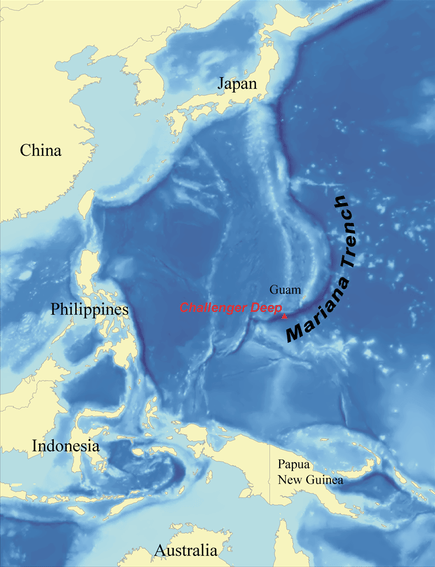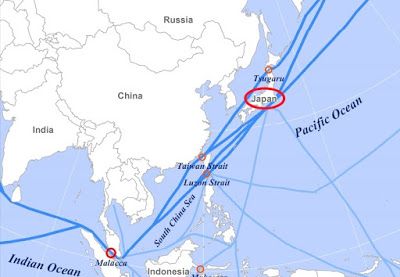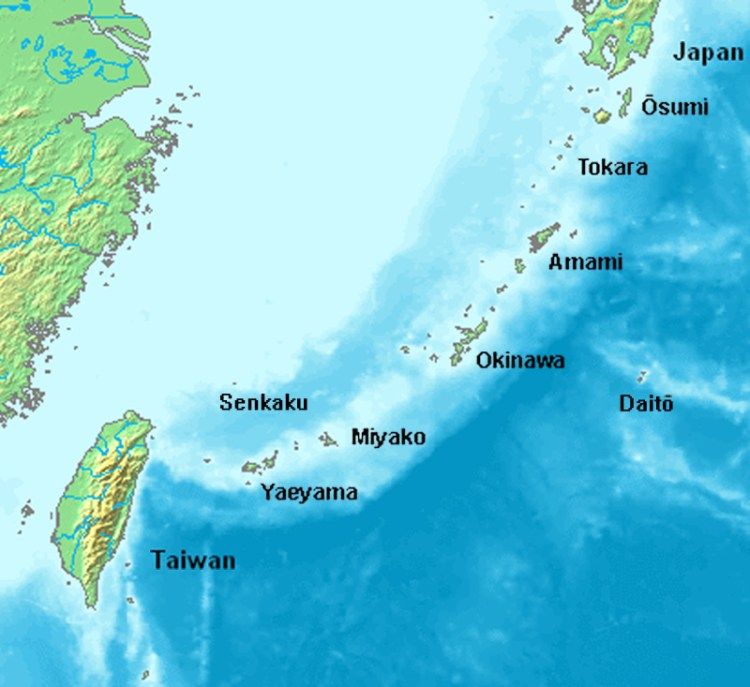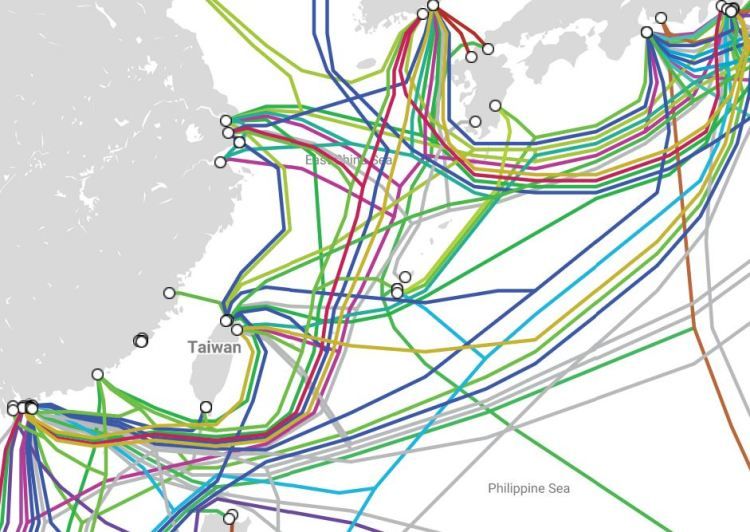Losing Taiwan Means Losing Japan
 |
| Image Source |
The United States could bounce back from the fall of Taiwan to Communist rule. It would have far more dire consequences for Japan. Consider this post a short, informal primer on why this is so.
Ian Easton explains the PLA’s view:
The Course Book on the Taiwan Strait’s Military Geography is a restricted-access PLA manual, used to teach senior officer seminars in Beijing… This source [informs] readers that Taiwan is a chokepoint of great utility for blockading Japan. The Taiwan Strait, it notes, is a Japanese maritime lifeline that runs from Europe and the Middle East, and based on PLA studies, Japan receives 90 percent of its oil imports, 99 percent of its mineral resources, and 100 percent of its nuclear fuel needs from ships that travel across these sea lanes. In total, 500 million tons of Japanese imports pass by Taiwanese waters each year, with 80 percent of all Japan’s container ships traveling right through the Strait, the equivalent of one Japanese cargo ship every ten minutes. Consequently, these waters will, "directly affect Japan’s life or death, its survival or demise."
PLA intentions and plans for a conquered Taiwan are made plain in another internal document, The Japanese Air Self Defense Force, a handbook studied by mid-career officers at the PLA Air Force Command College in Beijing. The stated purpose of the text is to help Chinese pilots and staff officers understand the strengths and weaknesses of their Japanese adversaries. Buried amidst hundreds of pages of detailed maps, target coordinates, organizational charts, weapons data, and jet fighter images are the following lines:As soon as Taiwan is reunified with Mainland China, Japan’s maritime lines of communication will fall completely within the striking ranges of China’s fighters and bombers…Our analysis shows that, by using blockades, if we can reduce Japan’s raw imports by 15-20%, it will be a heavy blow to Japan’s economy. After imports have been reduced by 30%, Japan’s economic activity and war-making potential will be basically destroyed. After imports have been reduced by 50%, even if they use rationing to limit consumption, Japan’s national economy and war-making potential will collapse entirely…blockades can cause sea shipments to decrease and can even create a famine within the Japanese islands. [1]
The first PLA document Easton quotes here has the statistics slightly wrong: the larger part of Japan’s energy imports travel to the south of Taiwan through the Bashi channel, in the Luzon strait.[2] To get a sense for what those shipping lanes look like, here is a map of A.P Moeller-Maersk, Mediterranean Shipping Co. and CGM SA’s Japan bound shipping routes:
 |
| Image Source |
 |
| Image Source |
A decade ago an underseas earthquake in the strait knocked out the internet in Taiwan, Japan, South Korea, and Eastern China. I will admit that I do not know how easy it would be to isolate the cables headed towards Japan and knock them out of service, but I am interested in finding out. If you work in that industry or have expertise in underseas infrastructure, please sound off in the comments!
[1] Ian Easton, The China Invasion Threat: Taiwan’s Defense and American Strategy in East Asia (Washington DC: Project 2049 Institute, 2017), 27-28.
[2]Euen Graham, Japan’s Sea Lane Security: A Matter of Life and Death? (Nissan Institute/Routledge Japanese Studies, 2006), pp.23-26.
[3] The Senkaku Islands are also easier to assault from Taiwan than anywhere else. However, I tend to agree with Todd Hall’s assessment that the Senkaku island dispute is more about the symbolics of honor than strict military utility. See Hall, "Why the Senkaku/Dioyu Islands Are Like a Toothpaste Tube," War on the Rocks (4 September 2019).
[3] E. I Chen, "Japan’s Decision to Annex Taiwan: A Study of Ito-Mutsu Diplomacy, 1894-95," The Journal of Asian Studies (1977), vol 37, iss. 1, pp. 65-67; Graham, Japan’s Sea Lane Security, passim.
Post navigation
Leave a Comment
Comment
Name *
Email *
Save my name and email in this browser for the next time I comment.
Notify me of follow-up comments by email.
Notify me of new posts by email.
12 Comments
Easy to find the cables and knock them out of service.
The cables come into a 'landing point' which will also be a major hub of the Taiwan internet/phone network. It is likely that the cables will all come into a single landing point.
However there are lots of cables directly between the USA and Japan so the impact of taking out the cables would not necessarily be severe.
Access to Asian internet resources would be slower because rather than routing directly it would go via the USA and then Australia to Asia or Europe-Africa to Asia. Access to US resources would be slowed a bit because of the extra traffic on the link.
A lot of internet resources are also available locally because they will be hosted in the AWS data centres in Japan.
Ultimately I think taking the cables offline would be significant symbolically and cause some short term disruption but have minimal real impact.
Even worse is the Philippines falling into Chinese hands. Which is what Duterte is now allowing.
While I agree that many have forgotten or simply choose to ignore Taiwan's geographical strategic importance to the U.S. in the Asia-Pacific region, this is hardly a new viewpoint nor one ignored by many in the military and intelligence fields who focus on this region. William Sebold once recorded General MacArthur's 1949 brief to the State Department on Taiwan (Formosa), an analysis that is just as true today as it was then:
"[MacArthur] said that if Formosa went to the Chinese Communists our whole defensive position in the Far East was definitely lost; that it could only result in eventually putting our defensive line back to the west coast of the continental United States. . . He pointed out that Formosa was astride the lines of communications between Okinawa and the Philippines, that it outflanked our position on Okinawa and, in the hands of the Chinese Communists, broke through the island wall which we must have along the Asiatic 'littorals' in order to maintain in a strategic sense a defensive line in the western Pacific."
Source: David M, Finkelstein, Washington's Taiwan Dillemma, 1949-1950, p. 225
There is no doubt that Taiwan is a strategic location. But it was bypassed in WW2 by the Allies and Okinawa was taken. So it is not the only location that can block Japan's supply lines. In fact, there are so many locations you could use to block those supply lines, it is not clear why Taiwan should be considered a necessary (as opposed to sufficient) condition to blocking them.
In addition, although it is not particularly well known, the weapon that totally destroyed Japanese commerce was not submarine torpedoes, but the late war magnetic mine campaign referred to as Operation Starvation.
The Chinese have shown a lot of interest in mine warfare as an equalizer to deal with the larger United States Navy. Although rocket assisted mines increase the depth that mines are useful at, those very same shallow waters are the fertile area for modern sea mines that sit on the ocean floor and rise up when the appropriate "signature" activates them.
Given that modern submarines, even diesel-electrics, are very expensive the Chinese would likely make heavy use of sea mines to blockade Japan. The alternative of an active blockade off the coast against a Japanese Navy that specializes (not surprisingly) anit-submarine warfare would not be a particularly palatable strategy.
Since the Japanese no longer have a navy that can defeat the Chinese one-on-one, they have no good strategy for dealing with a Chinese military threat. Taiwan does cork a bottle. But it also forces a very forward deployment to maintain control of it. It is very similar to the situation with the Philippines at the start of WW2. The US planned to concede their loss (after hopefully slowing down the Japanese more than they did), with the US defeating the Japanese in more neutral waters and retaking them. An all-in forward defense was not considered feasible.
terminals –
In following, Page 4 (labeled page 6) shows the Japanese sources of LNG. As you can see, unlike oil, LNG comes from a number of different places. The Middle East is not nearly so critical. With the Russians being one of the main suppliers, the Chinese might have a hard time cutting that source off.
https://www.tokyo-gas.co.jp/IR/english/library/pdf/anual/19e02.pdf
Japan is one of the more vulnerable countries to a blockade. They need to import all sorts of stuff. And to pay for that stuff, they need to export a lot as well. So any sort of blockade is going to hurt them alot.
Taking out the cables or even the stations would be fairly easy (considering how frequently accidental cuts happen). But you don’t need to take them all out. You simply need to take out the newer ones which will drop available capacity below critical levels. Combine that with area denial to repair ships (there aren’t that many) and you’ll effectively isolate Japan. Thankfully for them the Japanese internet is fairly insular but Tbps of capacity will still deeply impact local properties in strange ways. US based web properties will no doubt be hardest hit first as it will be very difficult to maintain in country resources.
My biggest fear is the collusion of the US and China to spite on Japan. The US did it with Vietnam in the 1973 and 1979 in the South China Sea. The US specifically told the South Vietnam not to reclaim the Paracel Islands. In 1979, The US sponsored Khmer Rouge and China to attack Vietnam which China invaded a few more Vietnamese islands in Spratley Islands. Today, China has become more powerful as the US regretted the mistakes from Nixon era.
The US desperately tried to mend ties with Vietnam against China but it's largely fail as Vietnam is still highly suspiscious of Americans. Additionally, China and Vietnam ruling Communists entered a secret agreement in the Post-Soviet era where both Parties will put aside national differences to manage crises and manipulate the world for the glory of Communism – Chinese and Vietnamese Communists never abandoned the Cold War. In the past, China ceded back the control of Gulf of Tonkin back to Vietnam, and South China Sea can be a similar story. The US will probably agree to allow Vietnamese control of all "islands" across the SCS as long as China isn't. China probably agrees not on American behalf but on the intra-Party conscience where both China and Vietnam must permanently resolve territorial disputes for bigger goals of spreading Communism – Chinese artificial islands are largely vulnerable and costly to maintain, so it is not a good long-term investment. Giving those islands to Vietnam will gain the popular support from Vietnamese people as well as the VCP for the upcoming China-Russia dream of new "WARSAW PACT" – to become a superpower, China needs friends. China and the US will focus the rest of 21st century on gaining friends in the ASEAN, and East Asia will become irrelevant. Vietnam has become the de facto leader of ASEAN since the Covid-19 Pandemic.
I have to question the logic of this on several grounds.
Firstly, the Chinese don’t have to take Taiwan to block the trade routes going past it: they can do that with ballistic anti ship missiles from the mainland.
Secondly, if the Chinese did try to starve Japan out, the Japanese would go nuclear. They’ve already developed ballistic missiles even if they call them launch vehicles, and the engineering challenges of nuclear weapons are fairly trivial for them. (They’re widely suspected of having nuclear weapons in kit form.)
And, as North Korea will tell you, you don’t try to starve our nuclear powers.
In fact if anything Taiwan’s strategic position relative to Japan acts as a restraining influence on China – because the conquest of Taiwan would lead to Japan assembling nuclear forces and the Chinese really, really don’t want that.

